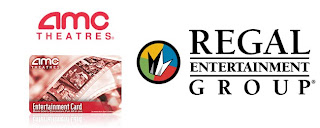
Question: How do companies in the media industry diffrentiate themselves from one another?
Summary: (Excerpt) "These days, it seems like everyone has an affiliation program of some sort. Airlines have had them for years (probably decades), and car rental companies have them, though they usually just award airline miles. Hotels give you airline miles or points towards free stays (some even give you both). One of the more recent entrants into this arena is for frequent movie goers. Some of you might realize that I watch movies, so this holds some interest to me, even if I don't always go to the movies to see them. So which is better - AMC's MovieWatcher or Regal's Crown Club?"
Analysis: Today's media market is all about competition. Television programs compete with each other, nwspapers and magazines compete with each other, movie theatres compete with each other -eveyone competes with someone else. As of right now, I want to focus on the latter - the movie theatres. The two main movie theater industries that constantly compete with each other are the Regal Entertainment Group and AMC Theatres. Because the main product of these two theatres is the same - movies - it is hard to keep coming up with new ideas to bring more audience in. They would need smething that would not only attract new people, but also something that would insure their customer's loyalty.
So what did AMC and Regal do to "stay afloat" and stay afloat with a "full boat of loyal custmers"? They each created programs that would provide their customers with some kinds of benefis. Regal now has Crown Club Rewards and AMC has MovieWatcher Rewards. Although the names do sound similar (at least the last parts do), they each have different perks.
For example, with a Crown Club Rewars, you can get free popcorn on tuesdays but with the MovieWatcher Rewards, you get discounted prices on Fridays, Saturdays and Sundays before noon. Then in Regal, in order to get a free poporn, yu have to earn 40 points, but in AMC you only need 10 for the same thing.
So two different companies have different ways of luring peole in, but in the end both of them have approximately same number of advantages and disadvantages, so they still get about the same number of people coming in everyday.
Sources: http://www.cxliv.org/2007/07/10/amc_moviewatcher_versus_regal_crown_club.php


